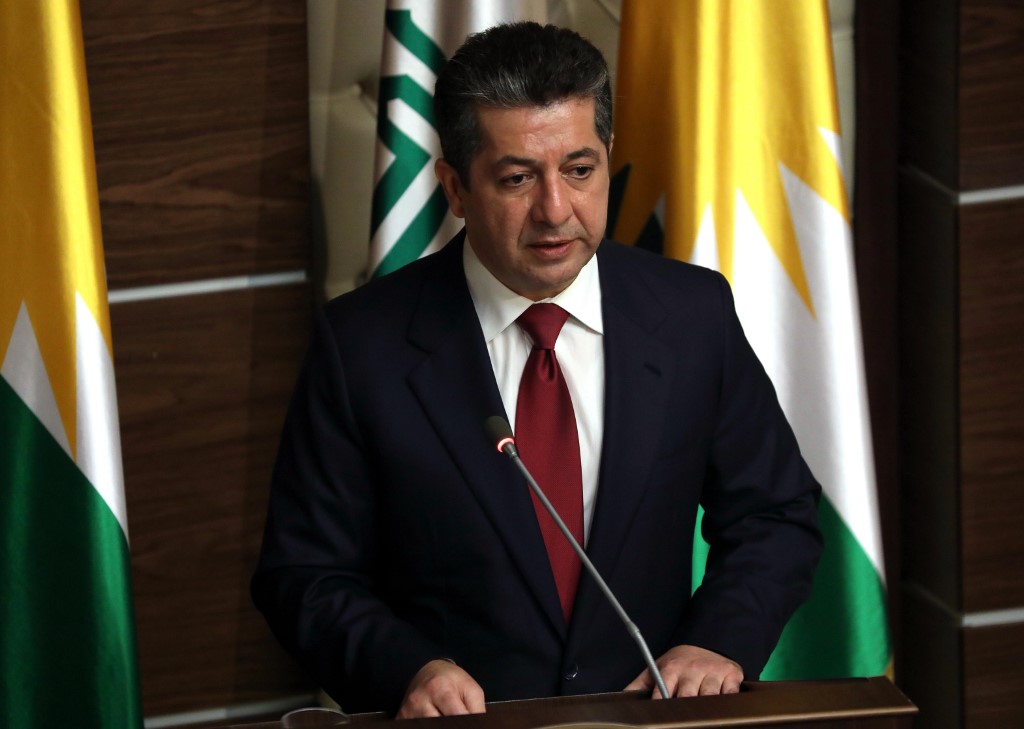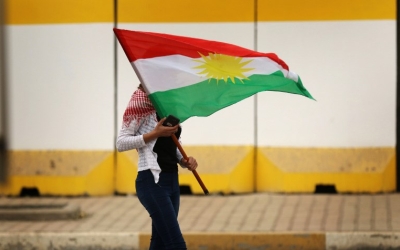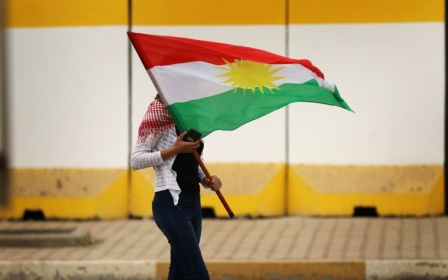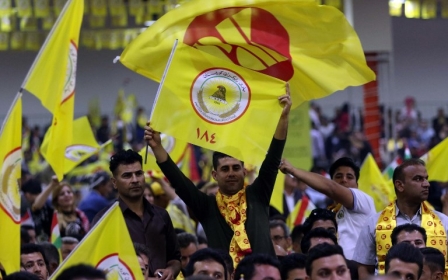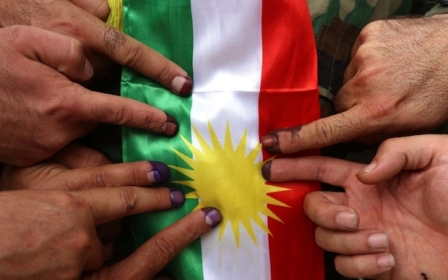Independence for Iraq's Kurdish region has proved a costly mistake
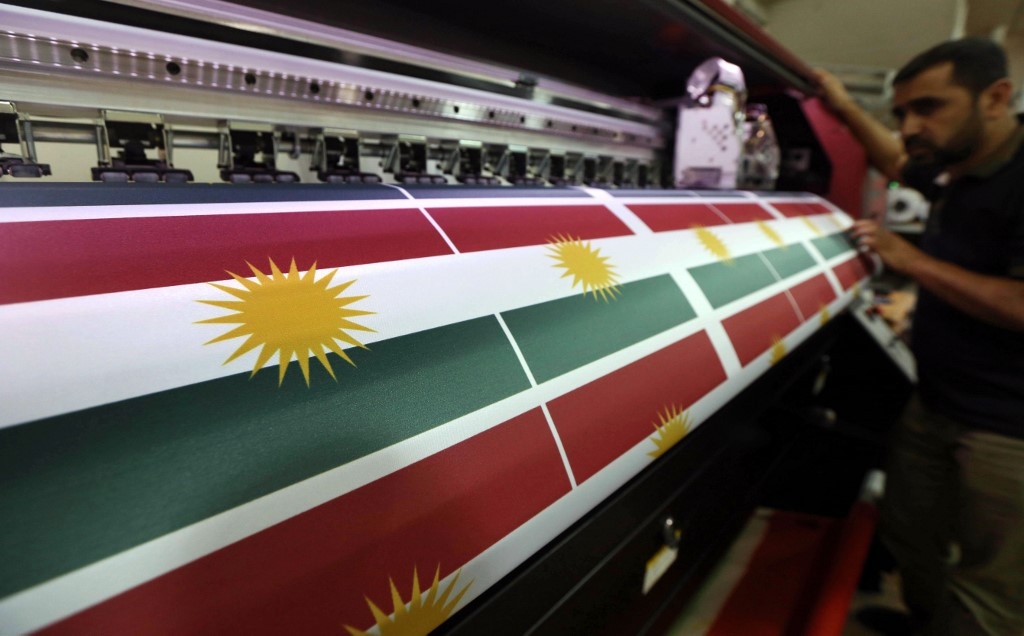
Nearly three years after Kurds overwhelmingly voted in a referendum to declare independence from Iraq, some are now feeling that they were misled by Kurdish politicians and are calling to restore Baghdad’s direct governance over the region.
In 2017, Kurdish leader Massoud Barzani rejected international pressure to delay the referendum. Soon after the independence vote, Iraqi forces expelled Kurdish forces from Kirkuk and other disputed areas without heavy clashes. The referendum was ill-timed and miscalculated, spurring Iraq, Turkey, Syria and Iran to unite against Kurdish aspirations for a larger state.
Corruption and mismanagement
Before the referendum, Kurds in Iraq already enjoyed autonomy from Baghdad. After a US-led coalition toppled Saddam Hussein’s regime in 2003, they missed a historic chance to announce their independence. Kurdish parties then offered to rejoin the new Iraq, seeking partisan and personal benefits. Kurds voted for Iraq’s permanent constitution in 2005, which recognised the Kurdish region as a federal region within a unified and democratic Iraq.
The Kurdistan Regional Government (KRG) had never paved the way for Kurdish independence in all aspects. Though it began exporting its oil independently in 2013, it failed to establish the basic infrastructure for a strong economy to guarantee self-reliance in the case of an economic embargo by neighbouring states.
New MEE newsletter: Jerusalem Dispatch
Sign up to get the latest insights and analysis on Israel-Palestine, alongside Turkey Unpacked and other MEE newsletters
The KRG is months behind on salaries for its 1.2 million public sector employees, some of whom have begun asking the Iraqi federal government to pay them directly
Mismanagement of oil revenues and corruption have led the KRG to financial and political bankruptcy. Prime Minister Masrour Barzani recently said that the government’s debt stands at $27bn. The KRG’s failure to be transparent on revenues from oil and other resources, and to respect an oil-for-budget deal with Iraq, led Baghdad to cut its share of the federal budget.
The coronavirus pandemic and the collapse of global oil prices have worsened the region’s financial woes. The KRG is months behind on salaries for its 1.2 million public sector employees, some of whom have begun asking the Iraqi federal government to pay them directly. In a recent poll conducted on a Kurdish Facebook group, a majority of respondents said they would prefer to rejoin the Iraqi government.
Lingering rivalries
One Kurdish lawmaker, Soran Omar, has called to annul the region’s independent status and resume direct rule by Baghdad, writing last month on Facebook that the KRG’s past three decades of governance have “been a failure, thus this entity should be negated”.
In addition, Sarkawt Shamsulddin, a Kurdish lawmaker in Iraq’s Council of Representatives, recently tweeted that he supports the Iraqi federal government reasserting its authority over Kurdish borders, airports and oil.
Conflict between the Kurdistan Democratic Party (KDP) and the Patriotic Union of Kurdistan (PUK) have made the region even more vulnerable to Turkish, Iranian and Iraqi political, economic and military manoeuvres. The two parties fought an internal armed struggle for several years in the mid-1990s, until signing a US-mediated peace agreement in 1998.
But the aftermath of their rivalries still can be seen, with the KDP controlling Erbil and Duhok provinces, and the PUK stretching its rule over Sulaimaniyah and Halabja. Both parties keep their own partisan armed forces and have separate security and intelligence agencies.
Although the Kurdistan region's Peshmerga, security, and intelligence agencies are artificially united under the KRG structure, practically both KDP and PUK have kept those forces under their partisan command; this is due to the massive mistrust between both ruling parties, since they are ready to use their militants for settling internal conflicts and cracking down on opposition activists and demonstrators.
The KDP maintains good political, economic and military relations with Turkey, allowing Ankara to establish military bases in Kurdish territories to fight their joint enemy: the Kurdistan Workers’ Party (PKK). Last month, Turkey sent warplanes to root out PKK militants in northern Iraq.
Turkey’s presence in the Kurdish region fits with its wider aim of asserting control over the provinces of Kirkuk, Mosul, Erbil and Duhok under an Ottoman-era pact invoked by President Recep Tayyip Erdogan.
Terminating the KRG
This month, Iraq sent forces to strategic positions near the border town of Zakho, raising the Iraqi flag over the region’s mountains for the first time since the Kurdish independence referendum. On social media, some Kurds sarcastically described the referendum as a hoax and a deception of Kurdish voters; others expressed relief at seeing the Iraqi flag flying again in the region.
For its part, the PUK maintains strong political, economic and military relations with Iran and associated Shia militias. The PUK is backing an effort for Sulaimaniyah to be administratively decentralised from Erbil, which could allow it to directly align with Baghdad should Turkey achieve its historical ambitions in Mosul and Erbil.
While most Kurdish political parties backed holding the referendum in disputed areas, nearly three years later, many locals are not happy with the outcome. Kurdish teachers in Kirkuk have called on the Iraqi federal government to pay their salaries directly.
This week, Iraq’s Prime Minister Mustafa al-Kadhimi called for an early general election on 6 June 2021. The same scenario should take place in KRG. The last parliamentary election, conducted two years ago, had a low voter turnout as well as wide-scale voter frauds by the KDP and the PUK.
Thus dissolving the current KRG cabinet and parliament, creating a transitional technocrat government, and conducting free and fair parliamentary elections under the sponsorship of the UN will ensure the Kurdistan region’s transition to a true democracy as well as its survival from a kleptocratic ruling system.
Terminating the KRG would be a complex process that would require amending Iraq’s constitution and holding another referendum. But amid complaints that the KRG has failed to bring democracy, human rights, justice and prosperity, I believe many - if presented with a choice of governance between Erbil or Baghdad - would choose the latter.
The views expressed in this article belong to the author and do not necessarily reflect the editorial policy of Middle East Eye.
Middle East Eye delivers independent and unrivalled coverage and analysis of the Middle East, North Africa and beyond. To learn more about republishing this content and the associated fees, please fill out this form. More about MEE can be found here.



